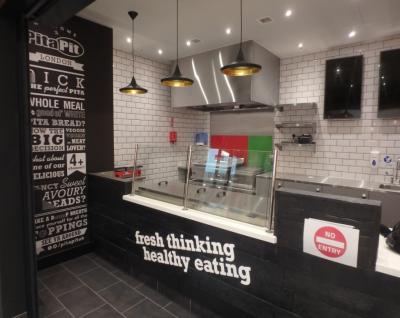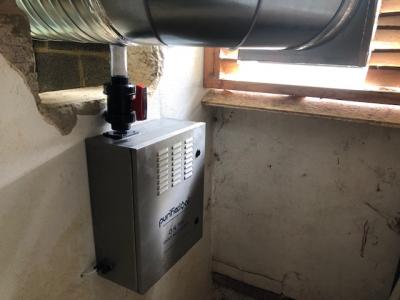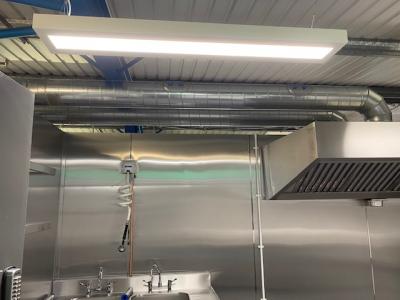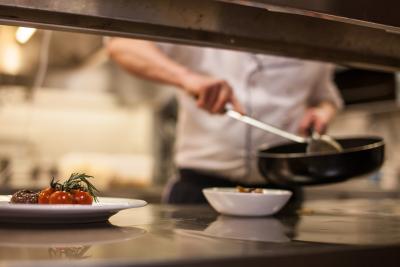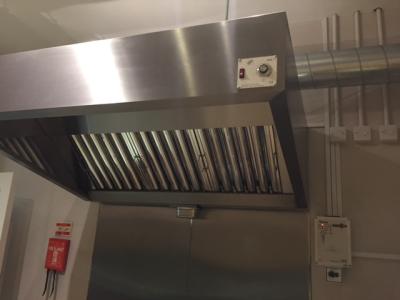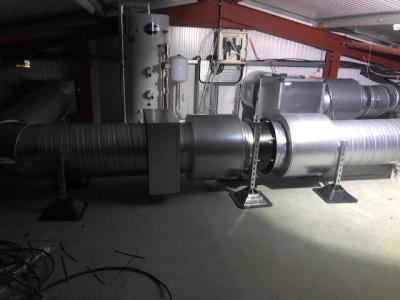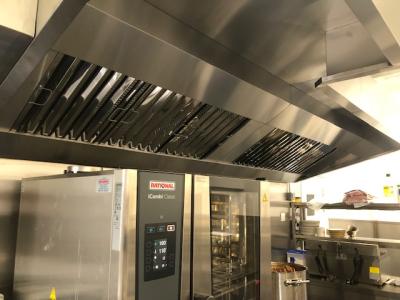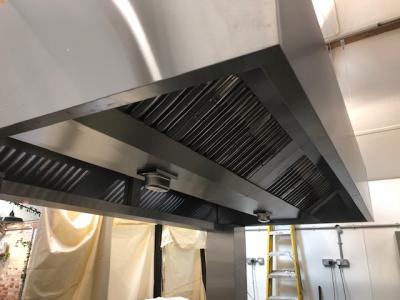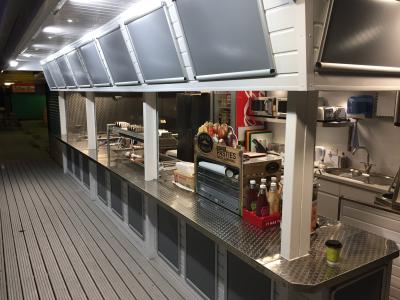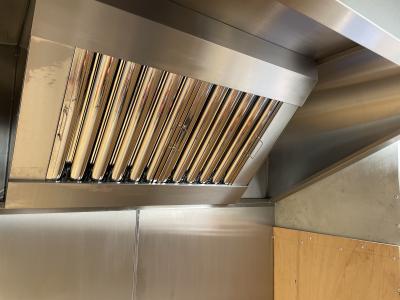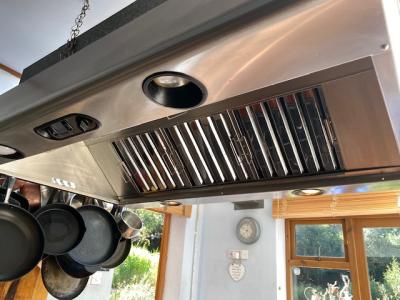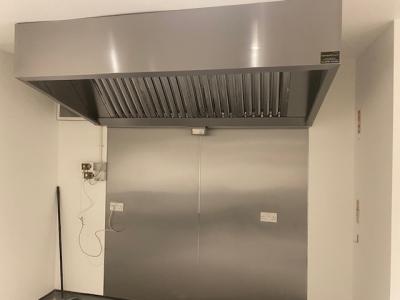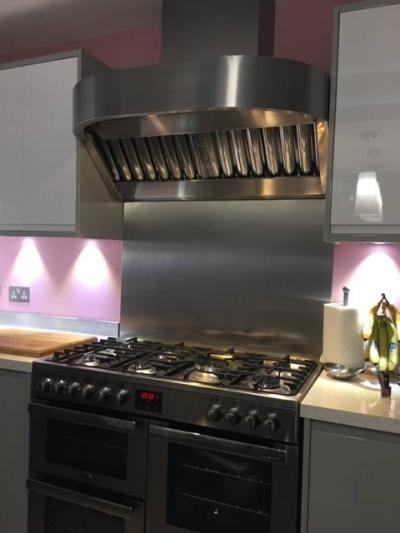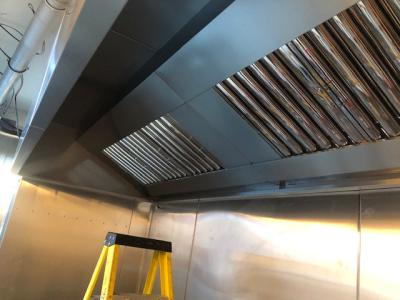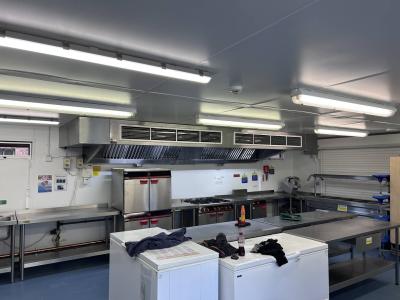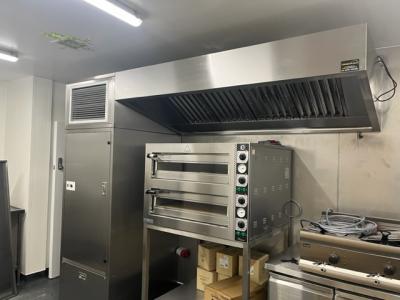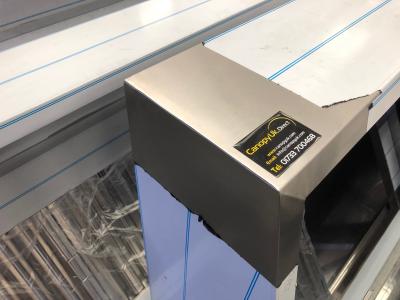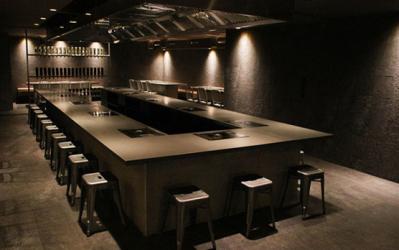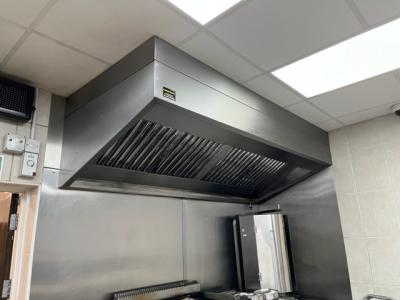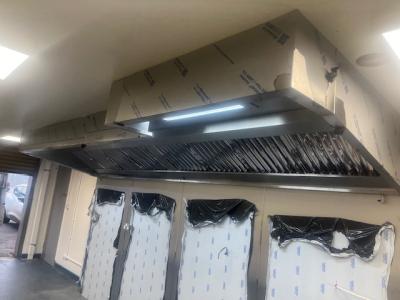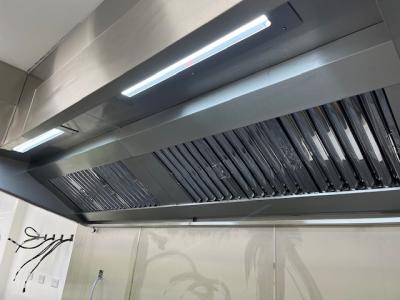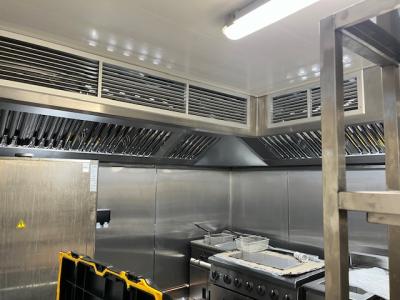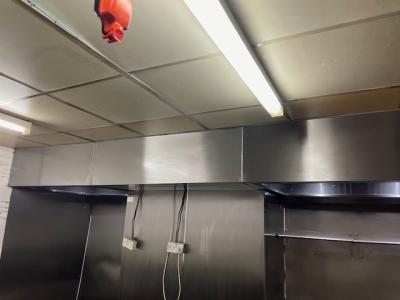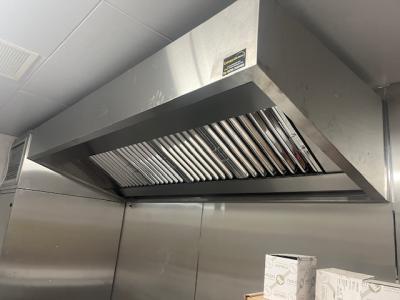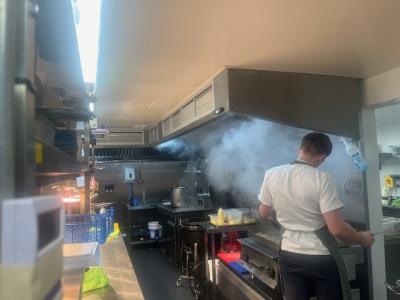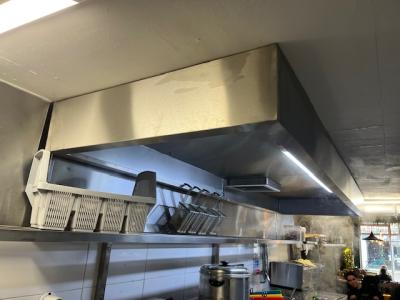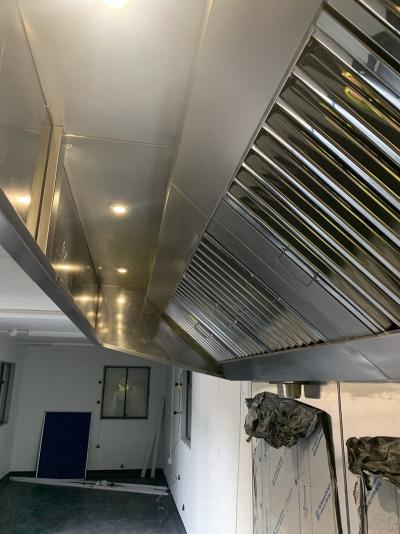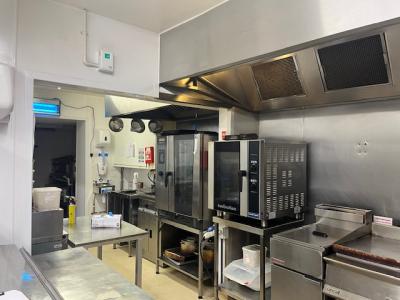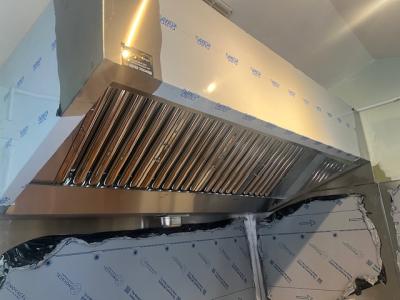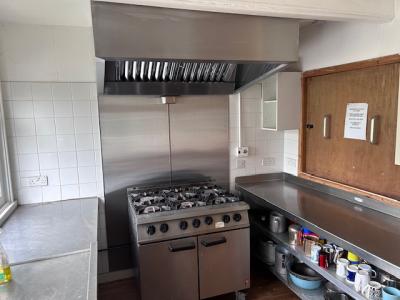We use cookies to make your experience better. To comply with the new e-Privacy directive, we need to ask for your consent to set the cookies. Learn more.
What Can Your Commercial Kitchen Cleanliness Cost You?
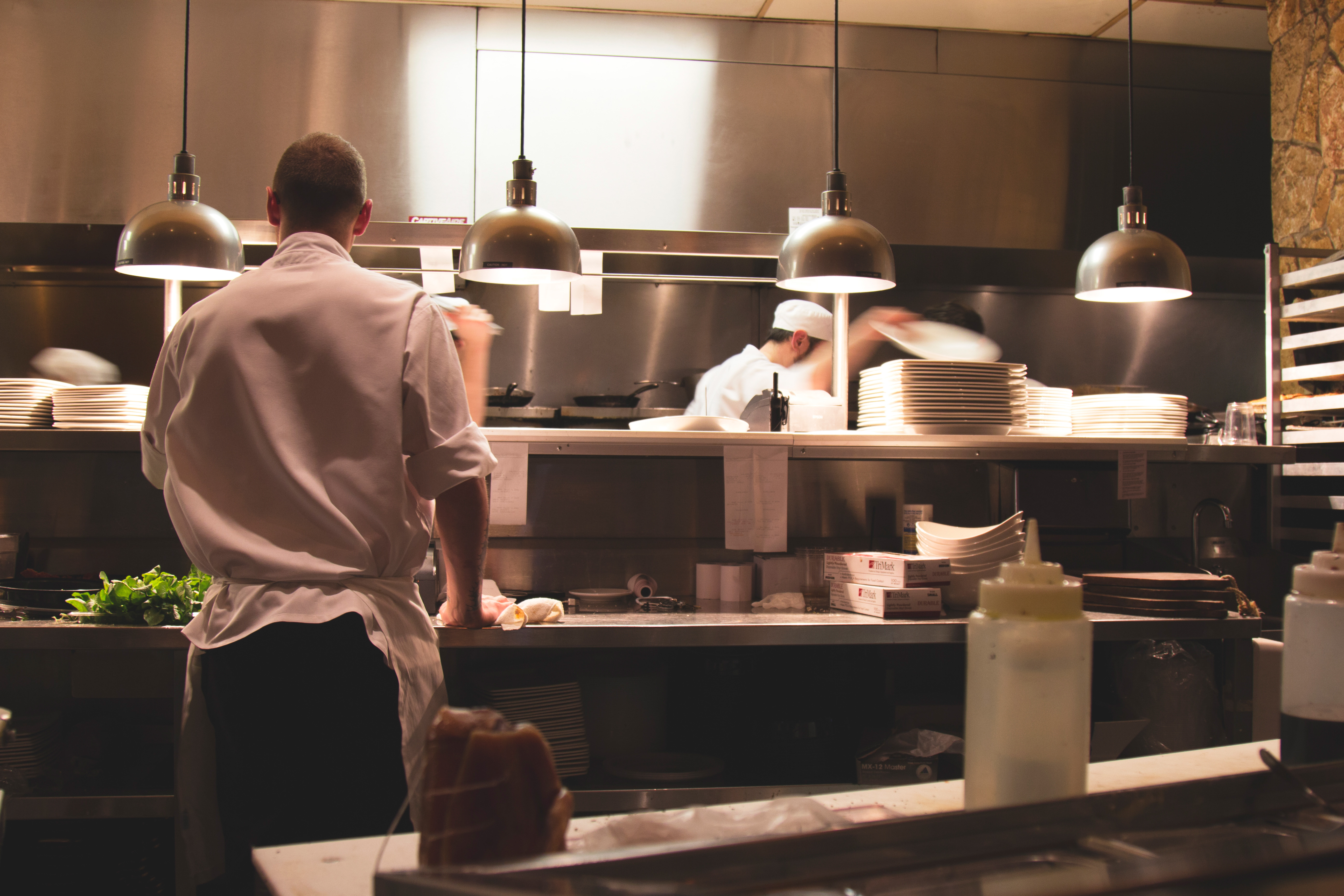
If your business plays host to a commercial kitchen, then the duty lies with you to ensure the health and safety of employees and customers alike.
Dirty and unhygienic environments can lead to customers becoming sick, or injuries occurring due to unsanitary floors.
Not only does this present you with a potential legal problem, it could also lead to a collapse of the business.
As well as the cost involved in a legal case, the threat of being shut down by health authorities either temporarily or permanently can be a worrying time - the damage it can have on the reputation of your business can have an enormous impact. However, with the rise of social media, it means that bad news can travel faster.
As a business owner, the likelihood is that you are very busy already, you don't have precious time or energy to waste on defending your business. The Food Standards Agency claims that the 2 most important food hygiene regulations for a business are;
- Regulation (EC) No. 852/2004 on the hygiene of foodstuffs
- The Food Hygiene (England) Regulations 2006 (as amended) (and equivalent regulations in Scotland, Wales and Northern Ireland)*
These pieces of legislation lay out the basic hygiene requirements in all areas of a business and covers your premises, facilities and personal hygiene. Failure to comply with these regulations means that you are running the risk of failing inspections from your local council; which can be carried out at any point without prior notice.
During these inspections the inspector will take notice of your premises, procedures and records. They are also entitled to take food samples and photographs for evidence. After an inspection you will receive a letter detailing if there are improvements to be made and the timescale you have to make them. Any food safety problems that are deemed serious enough could mean that a notice will be issued.
With this, specific equipment or practices will be subject to a complete ban until the specified improvements have been made. 2 examples of issued notices are;
- Hygiene Improvement Notice
- Hygiene Emergency Prohibition Notice
As a business owner, it is you alone that is responsible for ensuring the proper hygiene standards within the business in the eyes of the law.
There is no avoiding the issue, commercial kitchens have a tendency to generate a large amount of grease and organic matter.
Failing to have appropriate cleaning procedures in place can mean that a slip hazard is created impacting employee safety. Traditional cleaning methods can mean that contaminants can be spread around the premises including areas where food is consumed by customers - rather than destroyed and removed.
Another consideration in the Kitchen cleanliness area is the equipment you are using and its longevity. The correct cleaning and maintenance of kitchen equipment means that its efficiency is increased and it has a longer life, lowering your outgoings.
Choosing a kitchen extraction method that works to prevent a large greasy build up will aid you largely, particularly ones that are also self-cleaning. Switching from traditional cleaning methods like mopping to using steam devices in conjunction with a disinfectant.
Educating staff about hygiene, food safety and the important role it plays can help establish effective cleaning practices, including personal hygiene such as the expected procedure for hand sanitation and drying.
The business will be required to produce a Hazard Analysis and Critical Control Point (HACCP) plan. A HACCP plan is a way of managing food safety and will identify the potential biological, chemical and physical safety hazards that your business may face and putting in place procedures that will control them. It's also important to retain records of the procedures as evidence that they are effective.
The prospect of having to produce a hazard analysis plan can be daunting, but Food Standards Agency have produced guides on writing one for your business. Failing to comply with hygiene regulations will ultimately cost you your business, whether that be directly or indirectly. It's highly likely that you have invested time, energy and passion into your business so letting it fall at the hygiene hurdle could be a sad end to an emotional investment.
Taking the time to choose kitchen equipment that will decrease the manual hygiene workload, and implement effective cleaning processes from the beginning means you can concentrate on the road to success.
Share this post
Related Posts
Extraction Canopies - 01733 700468
Outside living and entertainment areas
Brighton - 5m canopy with two odour control units.
1200mm Quick Vent Canopy System
Star Breweries
The Market Cafe
Home canopies
Busy week for Canopy UK!
Westminster Academy
Varsity Hotel
Tannington Hall Wedding Venue
Domestic Kitchen Hoods
Out with the old, in with the new!
A new Roxy!
Private Home Canopies
Chatteris Working Men's Club
Bespoke Canopies
Roxy Ballroom- York
Steak and Honour
Norfolk Restaurant
New Canopy for holiday park
Categories
Monthly Archive
Topics
